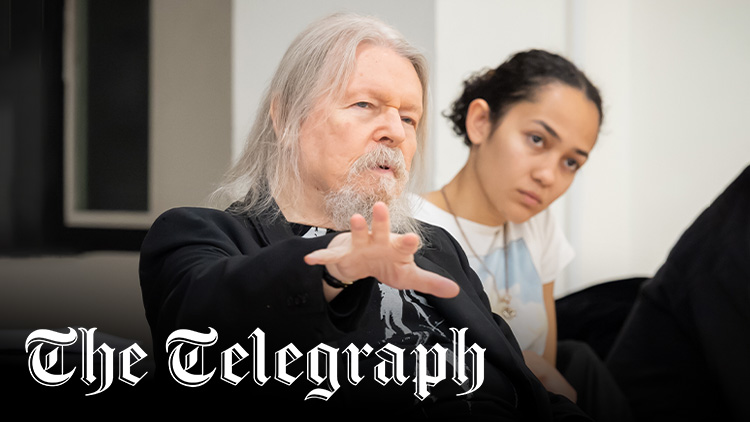THE TELEGRAPH INTERVIEW WITH CHRISTOPHER HAMPTON
Posted on 21 June 2024.
Posted in: Interviews with cast and creatives

In 1912 the Austrian Jewish writer Stefan Zweig received a letter from an unknown woman in her late 20s. She was an admirer, she said, but omitted to mention a husband and two children. “I am not writing in the expectation of a reply,” she concluded, “though it would give me great pleasure.” After the war, and a divorce, she became Friderike Zweig.
In 1922 Zweig, perhaps inspired by his wife’s forwardness, published what would become his most famous story. Letter from an Unknown Woman, later filmed by Max Ophüls as a Hollywood tearjerker starring Joan Fontaine, tells of a young woman who sends a fascinating letter to a famous Viennese author. As a child, she explains, she was his doting neighbour. Without revealing her identity, as an adult she tempted the author into a night of bliss. But when they meet again a year on he has no memory of her, and now she is going to end her life.
If the story had an aroma of autobiography, more strikingly still it contained a prophecy. Zweig married a much younger woman in 1939. Three years later, with no prospect of Hitler’s defeat, he and his second wife Lotte would kill themselves. He was 60, she was 34.
...
“I think Stefan Zweig’s great sin was that he was too popular,” says Hampton. “It’s quite analogous to Somerset Maugham who was so wildly popular that people assumed he must be second-rate. He was extremely generous to other writers. Joseph Roth never failed to pay him back by being rude about him in cafes. Thomas Mann is particularly condescending about him. The fact that he was a writer on their level never crossed their minds.”
Mann continued defaming both Zweigs after their suicide. “He can’t have killed himself out of grief, let alone desperation,” he railed. “The fair sex must have something to do with it.”
...
Hampton sees Visit from an Unknown Woman, as he has retitled the story, as the completion of a stage trilogy about Fascism’s emergence – “when society went from saying it can’t possibly happen to suddenly being in the middle of it.” The first in 2009 was an adaptation of Ödön von Horváth’s novel Youth Without God, written when he could no longer get his plays on in the 1930s. In 2017 came A German Life, starring Maggie Smith as Goebbels’s secretary.
Zweig is not quite a newcomer to the English stage. He features in Collaboration, Ronald Harwood’s 2008 play set during the rise of the Nazis when Zweig wrote the libretto for Richard Strauss’s opera Die schweigsame Frau. At the time, I remember Eva saying it helped her to see it as fiction that, absurdly, the actress playing her aunt was blonde.
Hampton’s big decision is to make Zweig a character in his own story. In 1948 Ophüls, who was a German exile, transplanted his film from the 1920s back to the era of Hapsburg swagger. In Hampton’s version it’s 1934. The unnamed writer, not identifiably Jewish in the story, is now called Stefan and clearly heading into exile.
“I’ve always assumed that the story has an autobiographical root to it,” he explains. “The idea of having forgotten someone you had a sexual relationship with is so ungraspable that it must have come from personal experience.”
...
Read the full article through the link below
Visit from an Unknown Woman plays on the Main Stage until 27 July.
BOOK VISIT FROM AN UNKNOWN WOMAN HERE
